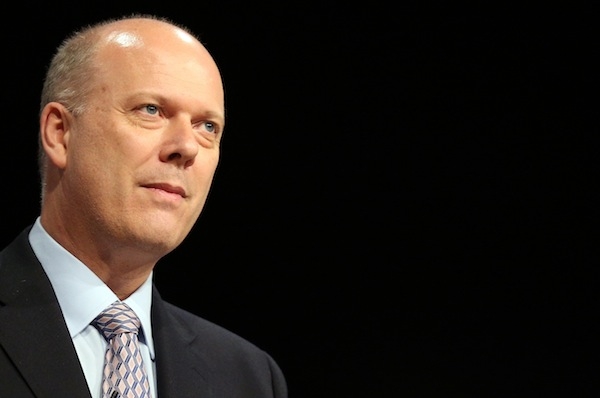It’s a big day for Chris Grayling: the long awaited Commission on a British Bill of Rights reports today. But the Justice Secretary is already setting himself up for disappointment, with reports swirling in the press that the Commission has failed to reach a strong conclusion.
In any case, as Grayling acknowledges in his op-ed in the Telegraph today, there isn’t much he can do about reforming the rights landscape in this country while the Tories remain in Coalition with the Lib Dems. Grayling says he will ‘read and digest the report of the Commission, and will see what help it gives me to deliver change in the short term’. But he adds that he will ‘also be looking clearly towards the next election, and starting work on ensuring that we had a real plan for change then as well’.
That work will involve looking to curtail the work of the European Court of Human Rights, so that its increasing involvement in domestic affairs ends. The Justice Secretary always has a task in these pieces simply to remind readers that the Court is not a benign, unquestionably good institution, and he does so again today:
‘Over more than half a century, the European Court of Human Rights in Strasbourg has moved further and further away from the intentions of those politicians who shaped the original convention. It has pried more and more into matters that should be routine issues for national courts and parliaments to deal with. It has interfered in areas which its creators would never have imagined that their work related to. It has tried, effectively, to set itself up as a Supreme Court for Europe.
‘The issue of prisoner voting, for example, is reported to have been expressly excluded from the original Convention. And I don’t believe it was ever intended to be used for matters like determining what school uniforms are worn, or at the other end of the scale, be used to allow foreign criminals and terrorists to avoid deportation.’
But things won’t necessarily be a great deal easier post-2015. Attorney General Dominic Grieve is a staunch advocate of the European Court. As Grayling develops separate Tory policy on the Strasbourg court over the next few years, he will come up against the legal lobby again and again. James pointed out in November that Grieve’s continuing presence makes it difficult to believe that the Conservative party is really prepared to be radical on this.







Comments